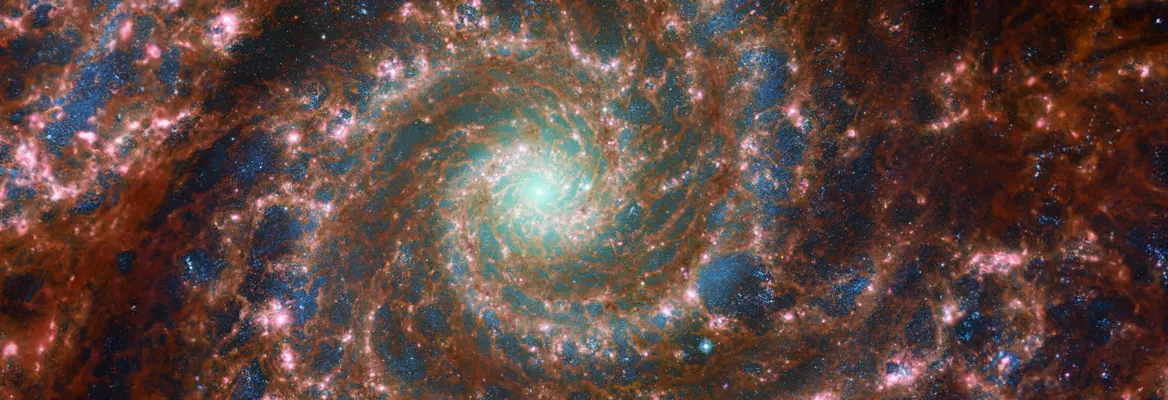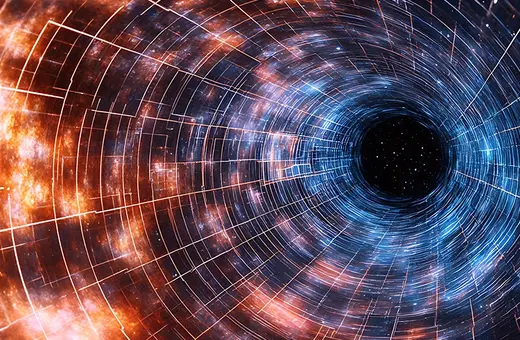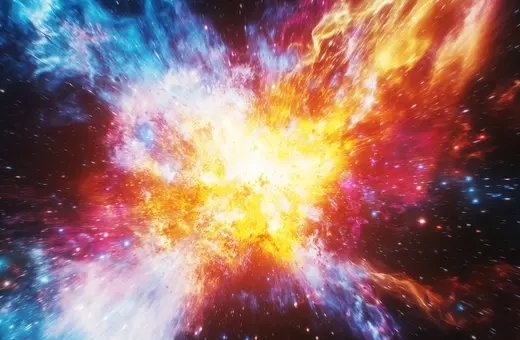Dark matter has never been detected, yet it is a key part of the dominant theory of cosmology. An alternative theory, MOND, is empirically equivalent and more successful at making predictions. But the fact that it has no place for the existence of dark matter is a problem for scientific realists who see science as building on past theories. MOND would signal a break with our current cosmological model, making a mockery of the idea of scientific progress as gradually getting closer to a true account of reality, argues David Merritt.
The universe is vast, and the longer we observe it, the more we learn about its composition and structure. But historians of science tell us that periods of steady growth in science tend to last only so long: they are interrupted by revolutions during which the old assumptions are thrown out and a radically new set are brought in. The initial decades of the twentieth century witnessed a number of such episodes. Classical mechanics and electromagnetism were replaced by quantum electrodynamics, Newton’s theory of gravity and motion was replaced by Einstein’s. The changes in these theories were so radical that even basic concepts like mass and time acquired fundamentally new meanings.
But it has been rather a long time since a major shift of this sort took place, and it is natural to wonder whether scientific revolutions are a thing of the past. Some philosophers of science seem to think so. For instance, John Worrall wrote in 2007 that “it is reasonable to believe that the successful theories in mature science–-the unified theories that explain the phenomena without ad hoc assumptions . . . are, if you like, approximately true.”
Worrall’s view, which is one aspect of what is now called ‘(critical) scientific realism’, is widely held among the current generation of philosophers. Scientific realists do not just postulate a mind-independent reality. They believe in addition that the central claims of our best scientific theories are probably, or approximately, true, even when it comes to claims about entities that are not directly observable—what philosophers call ‘theoretical entities.’ In the words of Stathis Psillos, scientific realism entails that “the entities posited by [mature theories], or, at any rate, entities very similar to those posited, do inhabit the world”. But a significant clash between current theories of cosmology over the existence of a substance called dark matter suggests otherwise.
___
Absolutely none of this dark matter, which supposedly constitutes most of what exists, has ever been observed.
___
The current, standard theory of cosmology—the so-called ΛCDM model—assumes the correctness of Einstein’s theory of gravity. But unless a term representing dark matter is added to the equations, the theory can not account for many of our observations of the universe. (CDM stands for ‘cold dark matter.’) Dark matter is not a minor component of the standard model; in fact, most of the matter in the universe is said to be dark. And while the detailed properties of the dark matter are not specified, cosmologists almost universally assume that it is composed of some kind of elementary particle. Considerable effort (and money) have been expended over the last four decades in attempts to detect the dark particles, so far without success. Absolutely none of this dark matter, which supposedly constitutes most of what exists, has ever been observed.





















Join the conversation